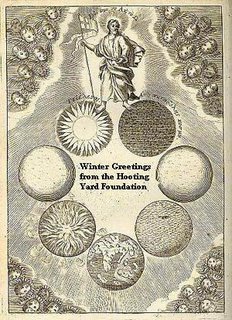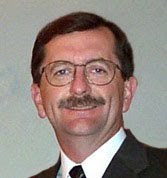Transfiguration
Transcript of an lecture given by Mr. Taplow to the urchins and ingrates of Pang Hill Orphanage a long time ago:
When I last addressed you from the lectern of Sawdust Bridge Salvation Hall there were not a few hobbledehoys amongst you who pooh-poohed my reportage for lack of calendrical specificity.
Allow me to correct the record: It was on the forty-third day of Bolismus in the 12th year of King Vinchenzo's reign at the hour of mighty flapping (The very moment when all birds mentioned in the Bible take to the wing). That was when the incident occurred. That was the precise moment that our eyes metaphorically stood on stalks, our jaws dropped and our hairs stood on end.
In our country (and in all of Christendom), Bolismus is a season howling gales and icy winds. In our blessed land, Bolismus brings the clucking of hens and is the season in which we festoon our duck-ponds. A holy and contemplative season which we rigourously observe. On that dismal morning in that barren clearing no winds howled, nor did birds flap or cluck. There were no pond-beds to festoon, for we had been sent to the unchurched hinterlands of Gaar.
The previous night we had been rehearsing our concerto, Syme (our vaporetto pilot) and myself were competent bassoonists. Tack, Weems and the Vercingetorix accompanied us on piccolo, hurdy-gurdy and nose-flute. Baxter had provided an arrangement of the nocturne from Winslow's Phlogiston Variations, a melody capable of stirring the gods.
And as we played, the Gods were indeed roused: They first arrived in ones and twos; barely perceptible and darting as if to avoid our curious gaze. As we reached the andante, other gods began to fill the clearing.
There were Gods as small as gnats. Pungent Gods like woozy mounds of suppuration. Glowing gods and dark gods, who were the very definition of blackness, Transparent wraith-like Gods and mountainous adamantine Gods. As we performed we became encircled by Gods of every shape, form and designation, and still they came, crowding and surrounded us.
Once again I sense your disbelief – you are wondering how we, mere amateurs could have tackled this piece which had perplexed the most prodigious of symphonists. You doubt that a trembling blind curmudgeon and a graduate of no reputable conservatory could have sight-read and fingered the alto-bassoon?
Back then I was not blind, and my agility was legendary - I cannot say how we played, other than that we were bewitched, enchanted and bedizened by the gaze of those Gods; that ethereal audience who willed us play through the night. And so we played on until our copse was suffused by fog.
And then at the Hour of Mighty Flapping when Baxter's baton signaled the crescendo he became enveloped in a golden light and then against his will, mighty hands scooped him up into the vault of heaven.
When Baxter's protestations faded , all was silent. The gods had vanished taking Baxter with them. All but Tack (who had averted his eyes) were stricken with blindness and dyspepsia.
Baxter is God now, perhaps a flunky in the court of whichever nameless God guides the fate of that unwholesome land. Perhaps he is the deity of pre-moistened pads, sudden pangs or bent pins. Or perhaps his divinity is still confined to that that forlorn and bird-less clearing in the dismal hinterlands of Gaar.



